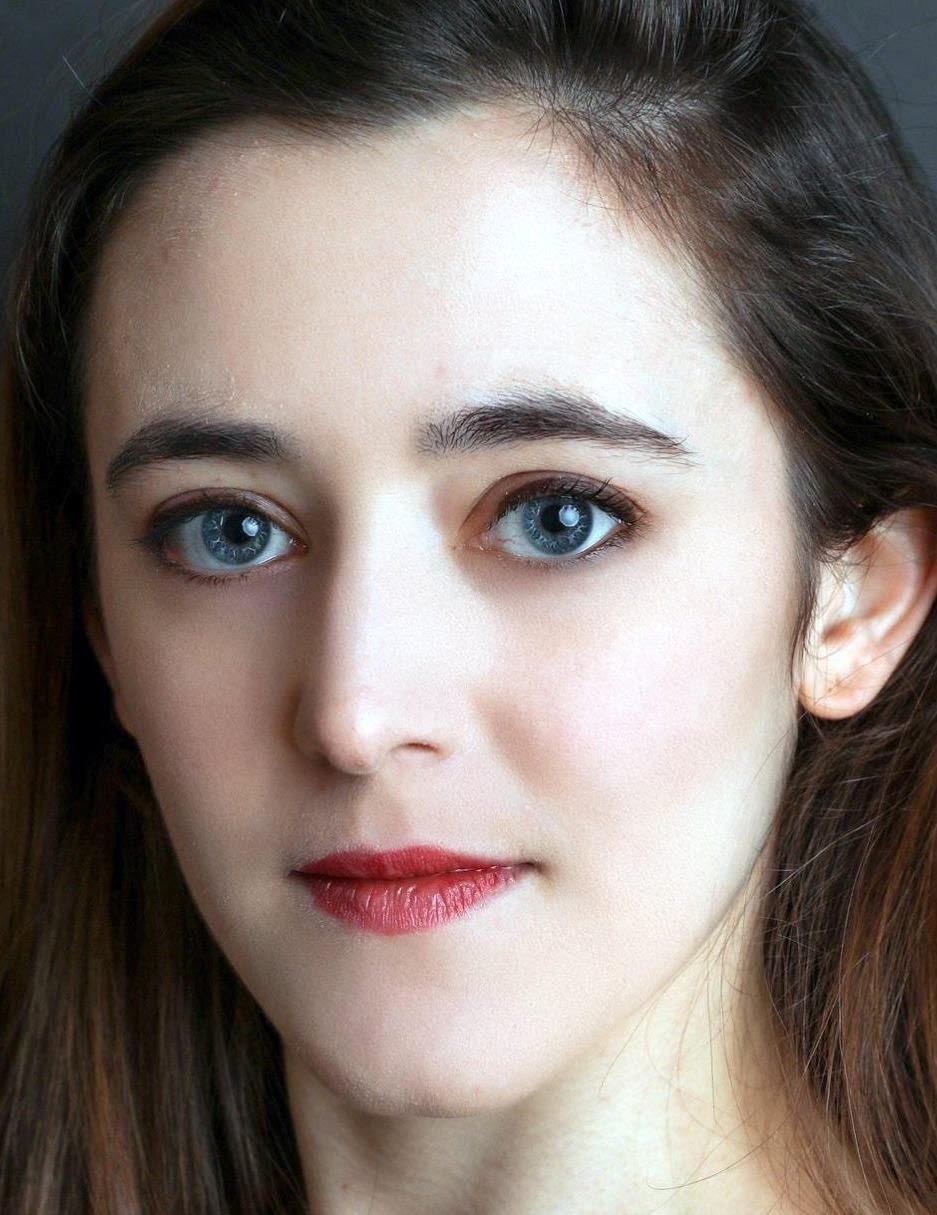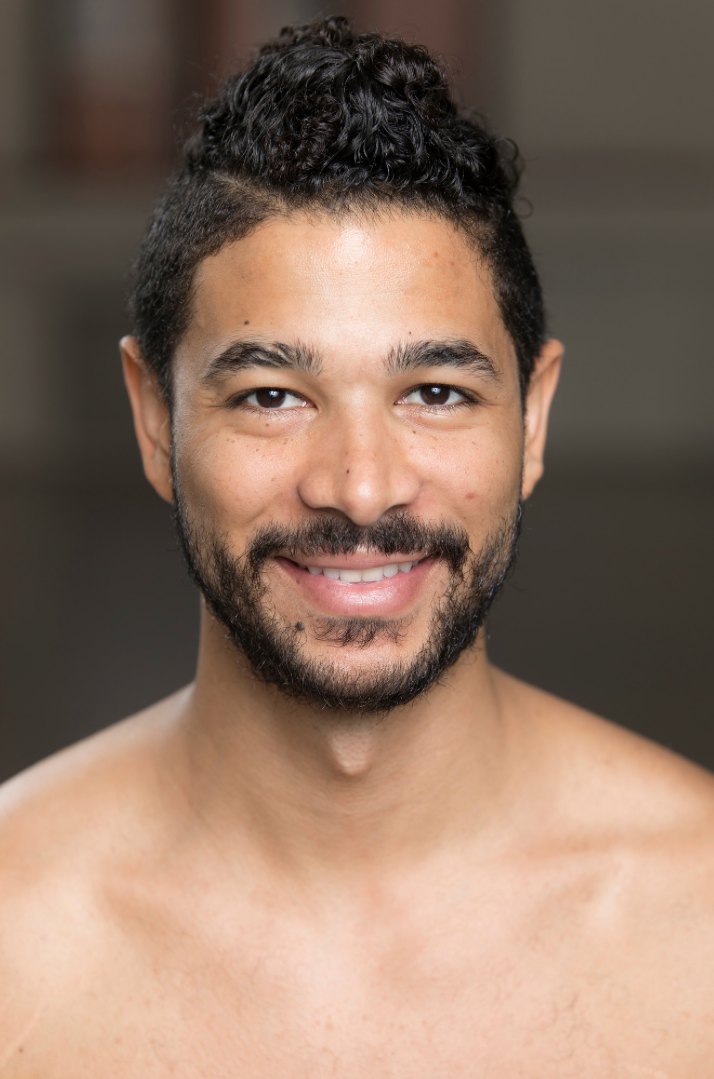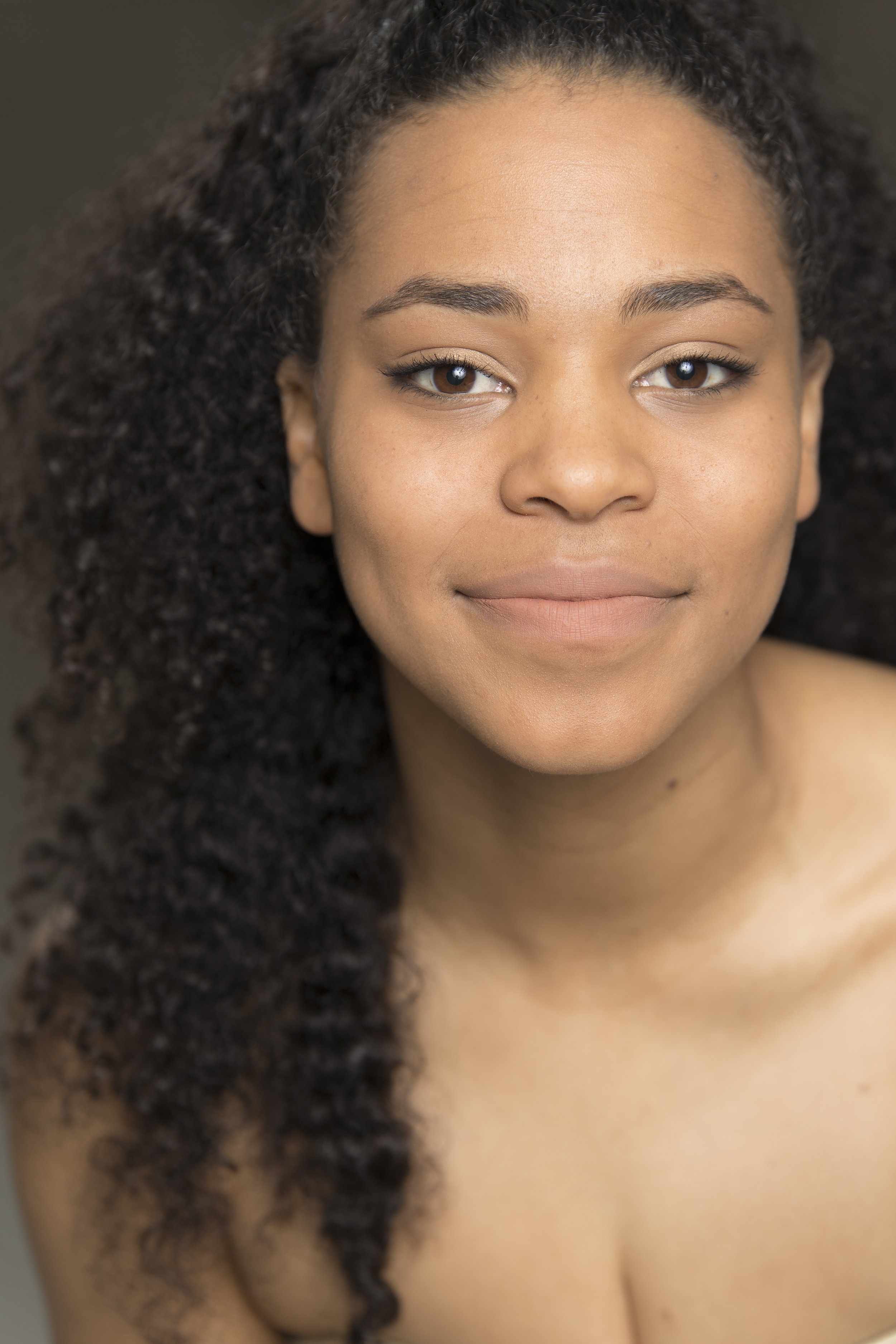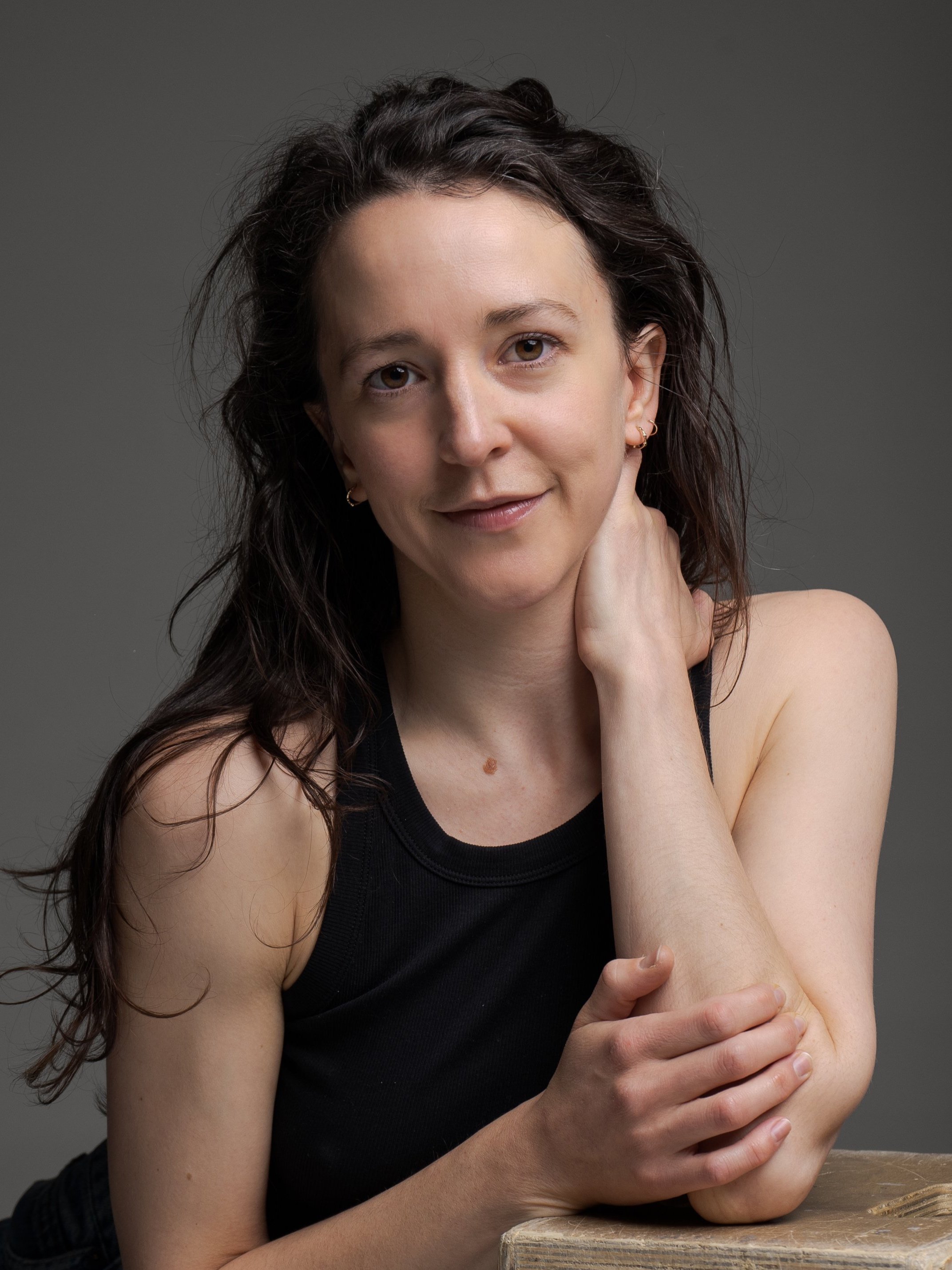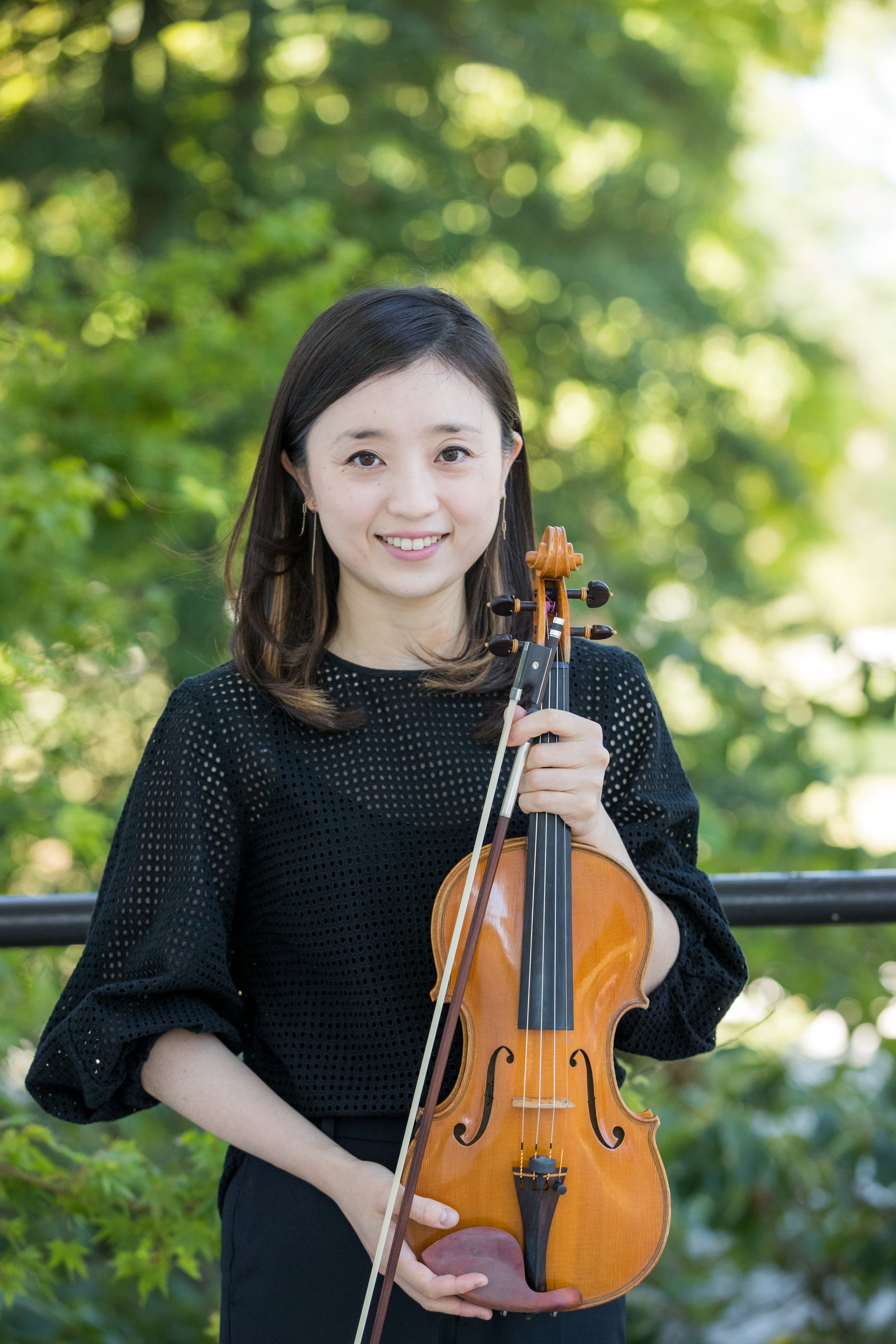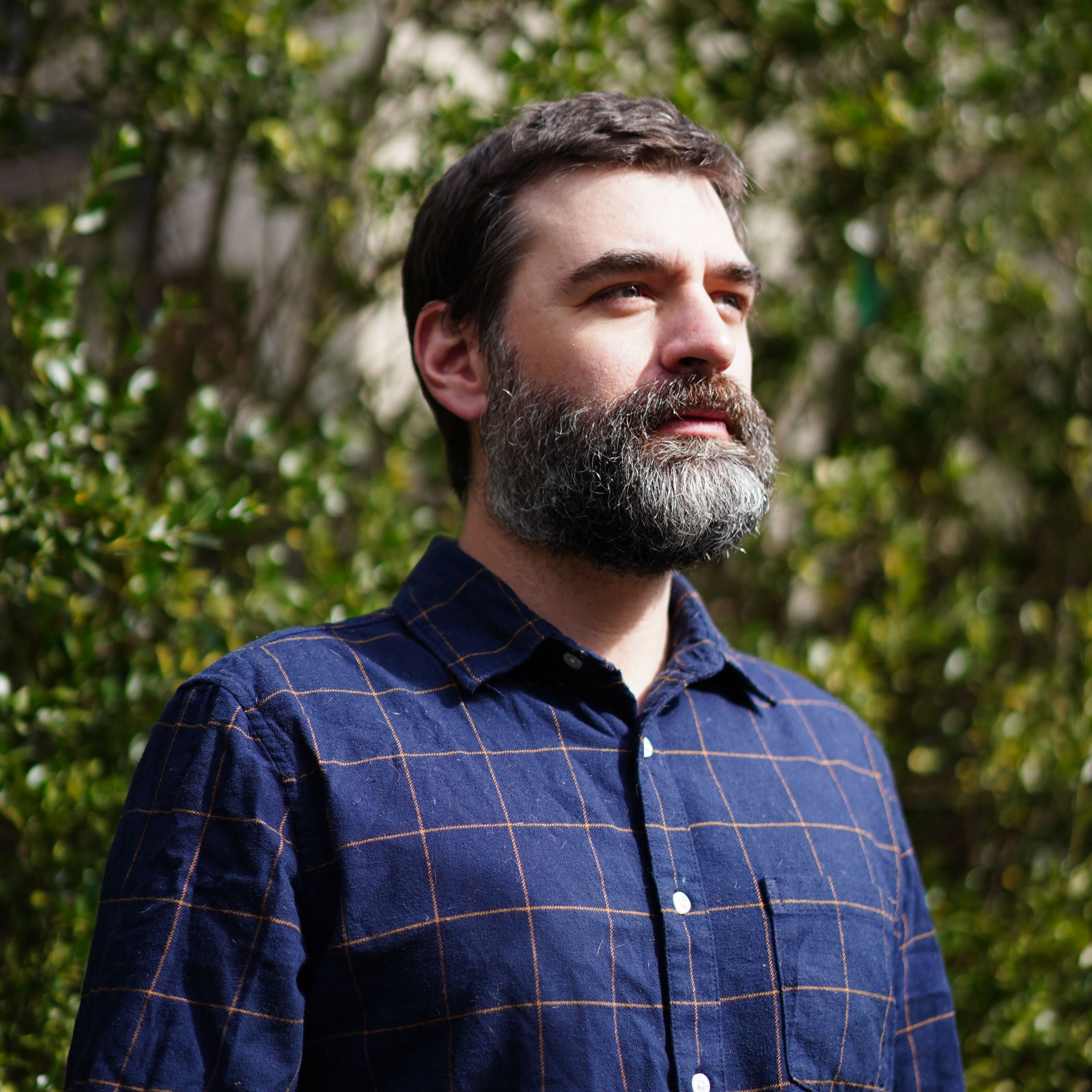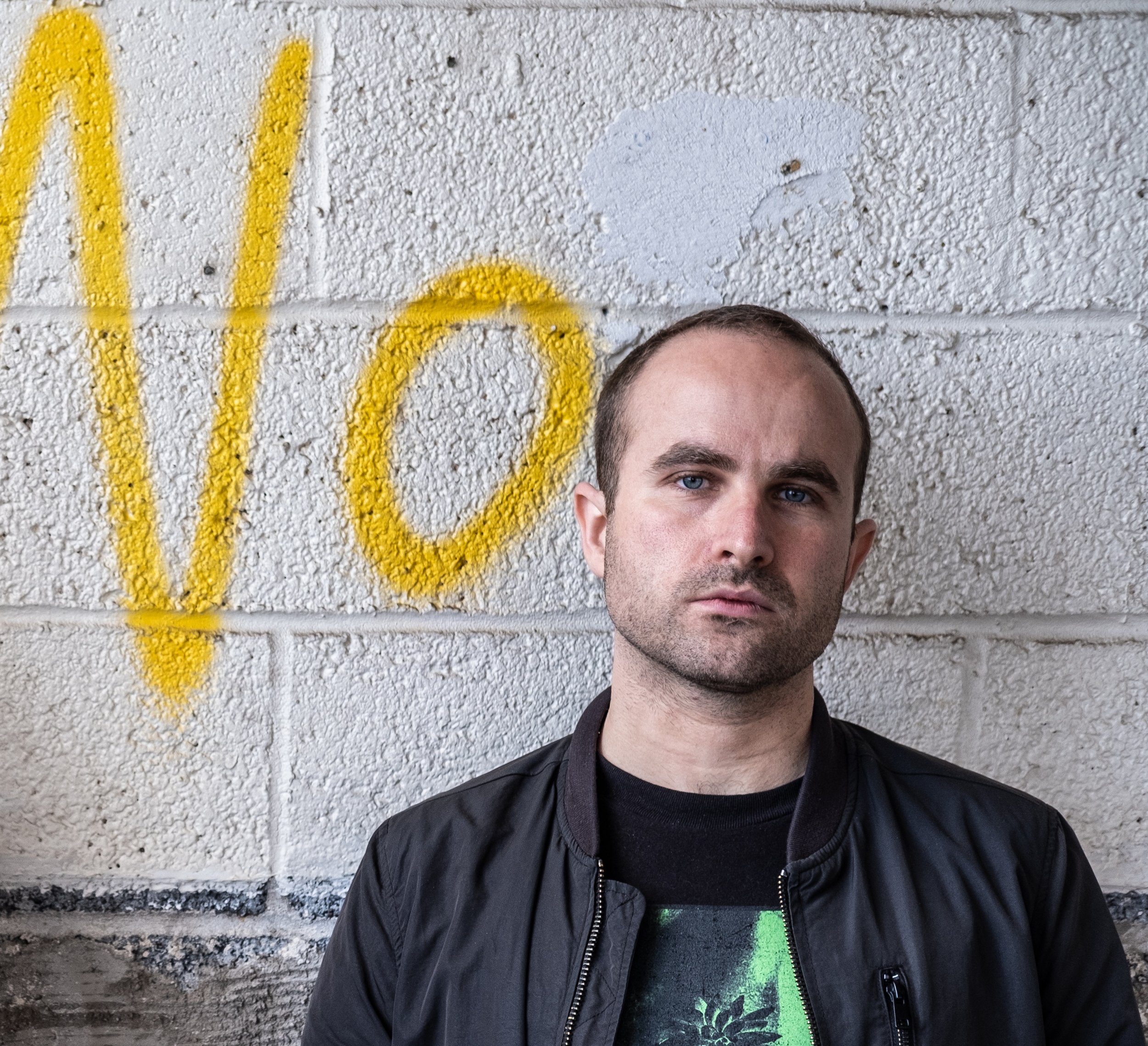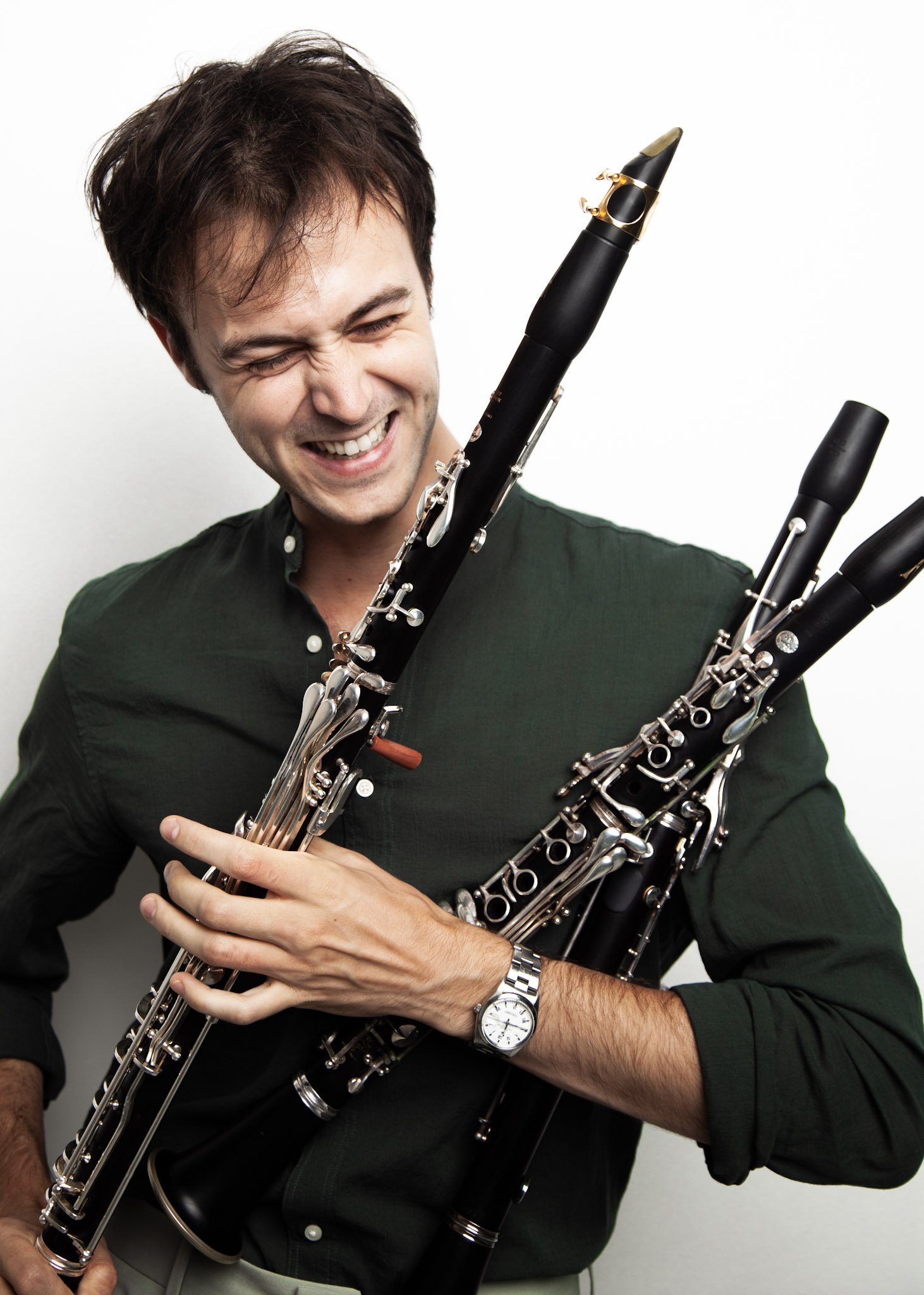Performers, Creators, Credits
The Winter’s Tale
Wednesday, June 5th at 7:30pm EST
Thursday, June 6th at 7:30pm EST
The DiMenna Center for Classical Music
Mary Flagler Cary Hall
450 W 37th St, New York, NY 10018
Jump to Synopsis
Jump to Creators
Jump to Designers
Jump to Dance Performers
Jump to Music Performers
WORLD PREMIERE: Lavagnino and Bresnick’s latest collaboration is based on one of William Shakespeare’s last great plays, The Winter’s Tale is a story of improbabilities, loyalty, love, and forgiveness. At times a comedy and others a tragedy, the plot resides in a patriarchal society in which the role of women is constantly thwarted and limited by male dominance. However, Shakespeare’s female characters contradict the gender mores of the period. These strong, grounded women display thoughtful judgment and compassionate morality. Utilizing gesture inspired by sign language, the movement vocabulary lends itself to the fervent emotional context displayed by the performers' embodiments of joy, madness, betrayal, jealousy, and passion. Several roles are portrayed by gender opposites to the original casting; Lavagnino utilizes this device to speak to the rich and interesting dimensionality of all people and urges the audience to lean into the acceptance of these differences to embrace the distinct expression of each individual.
Performance run time: approx. 80 minutes, brief pause between acts.
The creation and presentation of The Winter’s Tale has been made possible with generous support from:
The O’Donnell-Green Foundation for Dance and Live Music Commissioning Grant
The Harkness Foundation for Dance Grant
Synopsis of The Winter’s Tale
Act I: Polixenes, King of Bohemia, is anxious to return home after a nine-month trip to Sicily to visit his lifelong friend, King Leontes. Dismayed, Leontes begs his friend to delay his departure, but Polixenes refuses. When Leontes's pregnant wife, Hermione, succeeds in persuading Polixenes to stay, Leontes becomes suspicious that his wife has been unfaithful with his friend. His obsession grows until Leontes asks his cupbearer, Camillo, to poison Polixenes. Rather than do so, Camillo warns Polixenes. Together they flee the country, leaving Hermione and her beloved son, Mamillius, to face the King's wrath.
Act II: Leontes imprisons Hermione with no evidence against her other than his own suspicions. In captivity she gives birth to her baby girl. Leontes orders two messengers to inquire at the oracle at Delphi to prove his delusions correct. Paulina, Hermione's friend, takes the infant child to try and persuade Leontes to free his wife and overcome his obsessions. Instead, it only infuriates him further. He threatens Paulina, the child, and Paulina's husband, Antinogus. Leontes orders Antigonus to take the baby into exile.
Act III: Weak from her childbearing, Hermione is brought to trial where her innocence is proven by a message from the oracle. News comes that Mamillius had died from distress at his mother's arrest. Hermione collapses and is taken away. Paulina soon returns with news of Hermione's death, and Leontes faces reality and remorse for his actions.
Antigonus has a dream wherein Hermione directs him to leave the baby on a beach in Bohemia. He does this, and is then killed by a bear before he can leave. A shepherd and his son find the child and take her home.
Act IV: At the beginning of act 4, Time, personified as a character, explains that sixteen years have passed since the exile of the infant. He mentions that Leontes mourns the loss of his wife and children.
In Bohemia, Camillo, Leontes's old cupbearer, asks Polixenes if he can return home. Polixenes denies his request. He mentions how his son, Florizel, has met and fallen in love with a shepherd's daughter named Perdita. This relationship is far below the social station of the Prince, and Polixenes is not happy. Polixenes and Camillo, in disguise, attend the feast where dancers entertain them. When Florizel and Perdita are betrothed, Polixenes reveals himself. He denounces Florizel and threatens the shepherd and his son for allowing Perdita to befriend the Prince.
Act V: Camillo, still anxious to see his homeland, helps Florizel and Perdita escape and travel to Sicily. They are followed by the shepherds, who in turn are pursued by Polixenes and Camillo. At Leontes's court, Florizel introduces himself and his beloved as ambassadors on behalf of his father. Leontes, still in mourning over his actions, welcomes the son of his former friend and his new wife. Polixenes and Camillo soon arrive, explaining Florizel's escape.
Leontes discovers that Perdita is his long-lost banished daughter. With Perdita now a suitable companion for Florizel, everyone is reunited, and Leontes and Polixenes mend their past. As the play concludes, Paulina reveals a newly completed statue of Hermione. Everyone, especially Leontes, remarks at how beautiful and realistic the statue looks. Upon Paulina's direction, music sounds, and the statue comes to life.
Florizel and Perdita are betrothed, Leontes and his Queen are restored to one another and, as a reward for her care, Paulina is given Camillo to be her new husband.
Synopsis and overview credit to the Shakespeare Birthplace Trust.
Creators
Cherylyn Lavagnino earned an MFA in Dance under the mentorship of Lawrence Rhodes from New York University’s (NYU) Tisch School of the Arts, as well as a BA in Philosophy from the University of Southern California. Lavagnino’s professional dance career spanned worldwide as a soloist with the Pennsylvania Ballet, a principal dancer with Arizona Ballet Theatre, as well as a principal dancer with Ballet del Espacio in Mexico City under the direction of Michel Descombey. She has performed a range of classical repertoire and contemporary work by choreographers including George Balanchine, Jerome Robins, Jose Limon, John Butler, Hans Van Manen, Lynne Taylor-Corbett, Margo Sappington, John Butler, and Tere O’Connor. The diversity of these experiences has informed the dialogue between classical and contemporary in her work with Cherylyn Lavagnino Dance. Ms. Lavagnino is an Alpert Award nominee for choreography. Lavagnino has had successful commissions at Princeton University, Intermezzo Dance, Indianapolis City Ballet, Southern Methodist University, University of Utah, and Repertory Dance Theatre, as well as recipient of a space grant residency from the Baryshnikov Arts Center. Lavagnino served as Chair of the Dance Department at NYU’s Tisch School of the Arts from 2006–2014 and as a full-time faculty member from 1987-2022. In recognition of her superior work, Lavagnino won NYU’s prestigious David Payne Carter Award for Excellence in Teaching (2003). Lavagnino served as Visiting Professor of Dance at the University of Utah for the 2021-2022 academic year. She teaches professional ballet locally in NYC and internationally, instructs summer residency programming and company class for Abraham.In.Motion, and masterclasses in Tokyo, Beijing, Seoul, and Prague. She continues to develop a creative exchange with the Beijing Dance Academy and the Conservatory and Academy of Performing Arts in Prague. Lavagnino received NYU's prestigious Global Research Institute grant for travel and research in Prague (2018).
Born in New York City in 1946, Martin Bresnick’s compositions - from opera, dance, choral, chamber and symphonic music to film scores and computer music - are performed throughout the world. He delights in reconciling the seemingly irreconcilable, bringing together repetitive gestures derived from minimalism with a harmonic palette that encompasses both highly chromatic sounds and more open, consonant harmonies and a raw power reminiscent of rock. Bresnick’s orchestral music has been performed by the National Symphony, Chicago Symphony, American Composers Orchestra, San Francisco Symphony, New Haven Symphony, Münster Philharmonic, Kiel Philharmonic, Orchestra of the Radio Televisione Italiana, Orchestra New England, City of London Chamber Orchestra, Orquestra Sinfonica do Estado de Sao Paulo, St. Paul Chamber Orchestra, Oregon Symphony Orchestra, Bilbao Orkestra Sinfonika, and Izumi Sinfonietta Osaka, Fairfax Symphony, New Haven Symphony, and the Australian Youth Orchestra. His chamber and choral music has been performed in concert by The Chamber Music Society of Lincoln Center, The Crossing Choir, Sonor, Da Capo Chamber Players, Speculum Musicae; Bang on A Can All-Stars, Nash Ensemble, MusicWorks!, Zeitgeist, Musical Elements, Alarm Will Sound, Double Entendre, Tactus, Le Train Bleu, White Ibis Ensemble, Viney-Grinberg Piano Duo, New Morse Code, NakedEye Ensemble, TwoSense, Left Coast Chamber Ensemble, Chamber Music Northwest, Yale Choral Artists, Prism Saxophone Quartet, Great Noise Ensemble, Brentano String Quartet, Third Coast Percussion, Sō Percussion, Icarus Quartet, Crux Duo, Mammoth Trio, and Plexus Trio. Festivals throughout the world have featured Bresnick’s music: New York Philharmonic Biennial Festival, Bang on a Can Marathons, Big Ears Festival, Chautauqua Festival, Tanglewood, Olavsfest (Trondheim Norway), Oviedo New Music Festival (Spain), International Navy Saxophone Symposium, Missouri Chamber Music Festival, Evolution Contemporary Music Series, Tura New Music Festival Perth (Australia), International Festival of Arts and Ideas (New Haven), Sonic Boom, Adelaide, Sydney, Israel, Prague Spring, South Bank's Meltdown (London), Almeida, Melbourne Metropolis, Turin, Banff, Norfolk, ISCM, New Music America, New York Philharmonic New Horizons, and Red Note New Music Festival. Bresnick has written music for films - two of which, Arthur & Lillie (1975) and The Day After Trinity (1981) were nominated for Academy Awards in the documentary category (both with Jon Else, director). Other films include Cadillac Desert, Mohammed - Legacy of a Prophet, The Botany of Desire, William Carlos Williams, and Wallace Stevens - Made Made Out Of Words. Bresnick’s prizes and commissions include the inaugural Charles Ives Living Award from the American Academy of Arts and Letters, The Rome Prize, The Berlin Prize, a Guggenheim Fellowship, Koussevitzky Commission, Fulbright Fellowship, three N.E.A. Composer Grants, A.S.C.A.P. Awards, MacDowell Colony Fellowship, Morse Fellowship from Yale University, First Prize - Premio Ancona, First Prize - International Sinfonia Musicale Competition, Connecticut Commission on the Arts Grant with Chamber Music America (1983), two First Prizes, Composers Inc. Competitions, Semi-finalist - Friedheim Awards, The Chamber Music Society of Lincoln Center Elise L. Stoeger Prize for Chamber Music, Composer-in Residence, American Academy In Rome. Bresnick is recognized as an influential teacher of composition. Students from every part of the globe and of virtually every musical inclination have been inspired by his critical encouragement. He is currently a professor at the Yale University School of Music, where he has been a widely influential teacher of contemporary composition since 1981. His teaching has been recognized by a Walter J. Gores Award for Excellence in Teaching at Stanford University, ASCAP Foundation's Aaron Copland Prize for Teaching, and the Yale School of Music’s highest honor - the Sanford Medal for Service to Music. Educated at the High School of Music and Art NYC, University of Hartford (B.A. '67), Stanford University (M.A. '68, D.M.A. '72), and the Akademie für Musik, Vienna ('69-'70), Bresnick’s principal teachers of composition include György Ligeti, John Chowning, and Gottfried von Einem. Martin Bresnick is a member of the American Academy of Arts and Letters. His compositions are published exclusively by Carl Fischer Music Publishers, New York; Bote & Bock, Berlin; CommonMuse Music Publishers, New Haven. They have been recorded on Cantaloupe Music, New World Records, Albany Records, Bridge Records, Tall Poppies, Composers Recordings Incorporated, Centaur, Starkland Records, and Artifact Music.
Designers
Frank DenDanto III: lighting Design and visual artist, received his MFA in Design from NYU's Tisch School. Select NYC credits include Full Circle's Solar Powered at the New Victory Theater, Blind Alley at the Puerto Rican Traveling Theater, Only You at the Jewish American Theater, Shadow Box at the Hudson Guild Theater, Title of Show for NYMF, People Are Wrong at PS122 and Acts of Love at the Kirk Theater. He has designed for Spalding Gray, Eric Bogosian, Karen Finely, Tim Miller, Holly Hughes, John Fleck, Deb Margolin, Ann Magnuson, and John Kelly and Sarah Jones. Dance Credits include work with Sarah Michelson, Lava Love, Stacy Dawson, David Neumann, and the White Oak Dance Project and of course two decades with Bridgman/Packer Dance. His regional credits work at Stage Works in Hudson NY, the Berkshire Theater Festival, New York Stage and Film and Delaware Valley Opera and Half Moon Theater Co.
Awards for his light installation/sculptures include First Runner Up in Light Forums 98, and a Jerome commission in 2002. His work and designs have been displayed at the Andy Warhol Museum in Pittsburgh, The Museum of Art and Architecture and The New Museum of Contemporary Art in NYC, The ICA in Portland ME and the Basilica in Hudson NY. He is co-founder of Mother’s Milk Inc., a nonprofit arts support organization, based north of NYC, supplying production support, workshop and rehearsal space for theater and dance in NY.
When not working to support or create works of art, Frank designs lighting for retail, commercial and museum spaces. In his free time he enjoys building full size whale skeletal articulations with his brother Dan in ME that can be seen at the Nantucket Historical Society, Phillips Exeter Academy, Seacoast Science Center and Harvard University.
Karen Boyer designs and builds costumes in NYC. Past and recent collaborators include choreographers Catherine Galasso, Faye Driscoll, Sidra Bell, Abigail Levine, Sarah Dahnke, nicHi douglas, Katy Pyle, and Sunny Hitt; Opera Columbus, Fresh Squeezed Opera, and theater makers Yangtze Rep, the New Wild, Object Collection, harunalee, Little Lord, Pan Asian Repertory, and Target Margin Theater. BFA: Maryland Institute College of Art, MFA: NYU Tisch. karenrachelboyer.com
Dance Performers
A New Jersey native, Alexis Branagan trained at New Jersey School of Ballet and spent summers at The Juilliard School, American Ballet Theatre, Kaatsbaan, and San Francisco Conservatory of Dance. She received her degree in English with an emphasis on theater studies and dance from Princeton University, where she also founded Princeton University Ballet. She danced with New York Theatre Ballet from 2012-2022. She has also performed with Cherylyn Lavagnino Dance, Armitage GONE! Dance, and New Jersey Ballet and in Battery Dance and Westfest Dance Festivals to perform work by choreographer Amanda Treiber. She has performed works by Sir Richard Alston, Merce Cunningham, Susan Marshall, Agnes de Mille, Clove Galilee, Liza Genaro, Robert LaFosse, José Límon, Donald Mahler, Keith Michael, Jerome Robbins, Pam Tanowitz, Antony Tudor, and William Whitener. She has also danced in opera productions, in productions of Shakespeare in the Park by the Public Theater, at Carnegie Hall with the NY Pops for Holiday and Broadway hits concerts, and for television. Alongside her freelance dancing, Alexis works in communications for Princeton University Concerts and manages the Ballet Connoisseurship seminar program for School of American Ballet.
Arianna Tsivkin is a performing artist from New York City. She received her early dance training at the School of American Ballet where she performed with New York City Ballet in productions of "The Nutcracker" and "Firebird". She then studied at the JKO School of American Ballet Theatre where she performed in Alexei Ratmansky’s "The Nutcracker". Arianna has also trained at French Académie of Ballet, received scholarships to dance at Belvoir Terrace Performing Arts Camp, and has studied under Mignon Furman, Merle Sepel, and her mother Rebecca Tsivkin. She graduated from Laguardia High School of Performing Arts as a dance major, and has studied Fosse technique and theatre jazz with the Verdon Fosse Legacy. Arianna was honored to be part of the inaugural class of Pa’lante Scholars in the Professional Studies Program at Ballet Hispánico (BH) under the direction of Rodney Hamilton. While there she helped originate roles in works by Norbert De La Cruz III, Tsai Hsi Hung, and Juan Rodriguez, performed in works by Annabelle Lopez Ochoa, Michelle Manzanales, Pedro Ruiz, Gerald Arpino, Gustavo Ramirez, Alberto Alonzo, and more, and was a representative student for BH in Canada's National Ballet School's Assemblée Internationale '23. Arianna is delighted and grateful for the opportunity to perform with Cherylyn Lavagnino Dance.
Barrington Hinds is from West Palm Beach, Florida. He began his training at the School of Ballet Florida under the direction of Marie Hale. Hinds holds a BFA in dance from SUNY Purchase College and has worked professionally with VERB Ballets, Northwest Professional Dance Project, and the national tour of Twyla Tharp’s Broadway show, Movin’ Out. In 2011 Hinds was honored as a finalist for the Clive Barnes Award for young talent in dance. In 2022 he was awarded a Bessie for outstanding choreography alongside with the Bill T. Jones Company, Bill T. Jones, and Janet Wong . He has worked with leading choreographers including Laurie Stallings, Edgar Zendejas, Sarah Slipper, Helen Pickett, Thaddeus Davis, and Cherylyn Lavagnino to name a few. Hinds has also danced with the Stephen Petronio Company and has freelanced in commercial, TV, and print work. In addition Hinds is also a choreographer and teacher. His work has been shown at Purchase College, Dixon Place, Warwick Summer Festival, Arts On Site, and The Tank. Barrington currently is a Performer with the Bill T. Jones/ Arnie Zane Company in NYC. You can follow him @bar_hinds and his website www.barringtonhinds.com
Claire Westby is originally from Minnesota and now resides in Philadelphia, PA. She holds a BFA in Dance from Tisch School of the Arts NYU and also studied at Salzburg Experimental Academy of Dance (SEAD). Mrs. Westby has been a part of the Liz Gerring Dance Company for 13 years where she is also the Executive Director. She played the role of Red Queen in Third Rail’s production of Then She Fell. Additionally, Claire has performed in, and helped create original roles in works by John Jasperse, Brandon Collwes, Gwen Welliver, Benjamin Kimitch, Gerald Casel, Cherylyn Lavagnino, Helen Simoneau, and RoseAnne Spradlin. Claire Westby has also had the pleasure of teaching at New York University, Columbia College Chicago, Gibney Dance, Mark Morris Dance Center, St. Paul Ballet, Steps on Broadway, Western Washington University and Jacob's Pillow.
Dervla Carey-Jones is originally from San Francisco, CA, where she trained with the San Francisco Ballet School and with the ODC dance school. Dervla received a BFA from NYU’s Tisch dance program in 2018. During her time at Tisch, Dervla joined CLD and has continued working with the company since. In addition to performing in Cherylyn Lavagnino’s work, Dervla has performed in works by Gwen Gussman, Jordan Lloyd, Jenny Rocha, Maddie Schimmel, and in Opera Theatre of St Louis’ premiere of “Fire Shut Up in My Bones.” Dervla looks forward to continuing to work as a performer, vocalist, and dancer in the projects that the NYC community has to offer.
Erin Gallagher began her formal dance training at the Academy of Dance Arts in her hometown of Red Bank, NJ. She continued her studies at Studio Maestro (currently Manhattan Youth Ballet) in New York City with Deborah Wingert and François Perron. In addition, Erin participated in training programs at The Rock School of Dance Education, Pittsburgh Ballet Theater School, American Ballet Theatre, as well as several summers in Washington D.C. studying with Suzanne Farrell at the Kennedy Center for Performing Arts. Professionally, Erin has worked with New Chamber Ballet, Connecticut Ballet, Staten Island Ballet, Rebecca Kelly Ballet, Neglia Ballet Artists, TranscenDance Group, Accent Dance NYC, and Ballets with a Twist. Erin Gallagher is a graduate of Eugene Lang College of Liberal Arts at The New School.
Justin Faircloth is a performing artist from North Carolina. Since relocating to New York, Justin has had the pleasure of working with Blaze Ferrer, Cherylyn Lavagnino, Doug LeCours, loveconductors (FOH), Rashaun Mitchell + Silas Riener, Maddie Schimmel, Then She Fell, Third Class Citizen, Erik Thurmond, Ash Yergens, Jessie Young, Abby Zbikowski, and others. Instagram: @bacnneggs
Based between Denver & New York City, Gwendolyn Gussman is dancer, choreographer, teacher, and director. She is the Founder & Artistic Director of interdisciplinary performance company, HOLDTIGHT (HT). Most notably, Gussman’s work has been presented nationally at The Newman Center for the Performing Arts (CO), The Arts Complex with Denver Arts & Venues (CO), The Cell Theatre (NYC), National Sawdust (NYC), The Gallery Players (NYC), The Olympic Auditorium Complex (CO), Carroll Hall (NYC), and others. Gussman’s performance career has spanned contracts and collaborations with artists/companies including Shen Wei Dance Arts, Sean Curran, Cherylyn Lavagnino, dir. Daniel Fish, comedian Amy Sedaris, Vanessa Walters, Heidi Latsky, Control Group Productions, Cleo Parker Robinson Ensemble, and others. She is currently choreographing a 90-min Eco-Dance/Chamber-Jazz Orchestra piece, From the Ashes, in collaboration with composer Daniel Weidlein, to be premiered in 2025. Gussman graduated from NYU’s Tisch School of the Arts with her BFA in Dance. Gussman has danced with CLD since 2016 and is honored to be part of the 25th Anniversary Season!
Michael Miles was born and raised in St. Mary’s County, MD. He started dancing at the age of 9 at Bunny Bailey Studio of Dance where he studied tap, jazz, and show dance. Michael continued his dance training at Abigail Francisco School of Classical Ballet where he studied ballet, character, jazz, and tap and went on to receive a BFA in Dance from Tisch School of the Arts at New York University. Since graduating, Michael has had the pleasure of dancing with Amanda Selwyn Dance Theatre and Lydia Johnson Dance. He is grateful for the opportunity to perform with Cherylyn Lavagnino Dance.
Philip Strom is a movement artist based in New York City. He performs with the Bill T. Jones/Arnie Zane Company, Bennyroyce Dance (Seattle & NYC), Cherylyn Lavagnino Dance, & RyderDance. Philip was raised in Washington State where began his dance training under Debra Pearse Rogo. He continued his education at NYU’s Tisch School of the Arts where he received his BFA. As a student Philip performed works by Ronald K. Brown, Maxine Doyle (Punchdrunk), Emese Nagy (MA•ZE), Crystal Pite, Ishan Rustem, Sonya Tayeh, and Paul Taylor. In addition to performing and touring, Philip creates his own work and teaches. He is an Artistic Associate of Bennyroyce Royon, having rehearsal directed Royon’s company, assisted them in choreographic processes, and staged their work. As a teaching artist Philip has led students at The Ballet Hispánico School of Dance and Rutgers University; as well as summer intensives at The Juilliard School and the Joffrey Ballet School.
Music Performers
New York-based Australian musician Lisa Moore is a multifaceted pianist, a prolific recording artist, and an avid collaborator. The New York Times has singled out her playing for its “life and freshness” and “fragility and tenderness”, The New Yorker describes her as “visionary” and “New York’s queen of the avant-garde piano” while Pitchfork claims “she’s the best kind of contemporary classical musician, one so fearsomely game that she inspires composers to offer her their most wildly unplayable ideas”. Given a special passion for the music of our time, Moore won the silver medal in the 1981 Carnegie Hall International American Music Competition and has since performed hundreds of commissioned works and world premieres – having worked with more than two hundred living composers, while residing and collaborating in the vibrant new music scene of New York City since 1985. Moore has performed throughout Europe, the UK, USA, and Asia - on some of the world’s great stages: New York’s Carnegie Hall and Alice Tully Hall at Lincoln Center, the Sydney Opera House, La Scala in Milan, London’s Royal Albert Hall and Royal Festival Hall, and Vienna’s Musikverein. She has released twelve solo albums - ranging from music by Leoš Janáček to Julia Wolfe - and more than thirty collaborative discs. Gramophone writes about her 2015 Mad Rush Philip Glass disc: “what becomes abundantly clear is Moore’s highly developed, intuitive and nuanced approach to this music”. Moore’s 2016 album The Stone People was selected by The New York Times Top Classical Albums 2016 and Naxos Critics’ Choice 2017. In June 2022, Moore released no place to go but around – her second album of music by Frederic Rzewski – to compelling notice. The New York Times remarked that the album is “meticulous...clever...hits the gas with controlled force”. For sixteen years (92-08) Moore was the founding pianist for the award-winning electro-acoustic sextet Bang On A Can All-Stars. She has performed with leading artists, ensembles and dance companies – Philip Glass, Meredith Monk, Ornette Coleman, Frederic Rzewski, Don Byron, Pamela Z, Thurston Moore, Iva Bittova, Bryce Dessner, London Sinfonietta, Steve Reich Ensemble, New York City Ballet, American Composers Orchestra, and The Chamber Music Society of Lincoln Center. As a concerto soloist, Moore has performed with the London Sinfonietta, Australian Chamber Orchestra, Albany Symphony, La Jolla Symphony, Sydney Symphony, Tasmania Symphony, Thai National, Monash MAPA, Canberra Symphony Orchestra, Philharmonia Virtuosi, Wesleyan University Orchestra-Sumarsam Gamelan, and the Queensland Philharmonic. She has worked under the batons of David Robertson, Leonard Bernstein, Pierre Boulez, Brett Dean, Roger Benedict, Bradley Lubman, Steven Schick, Benjamin Northey, Richard Mills, Reinbert de Leeuw, Jorge Mester, Leonard Dommett, Dobbs Frank, and Angel Gil-Ordonez. Moore’s festival appearances include Lincoln Center, BAM Next Wave, Banff, Tanglewood, Aspen, Chautauqua, Gilmore, PianoSpheres LA, Chamber Music Northwest, Huddersfield, Vale of Glamorgan, Liquid Music MN, Holland, Graz, Hamburg, Taormina, Paris d’Automne, Rome, Milan, Turin, Lithuania, Uzbekistan, Hong Kong, BBC Proms, Southbank, Barbican, Adelaide, Perth, Brisbane, Sydney, Melbourne Metropolis, Israel, and Warsaw. Lisa Moore is a Steinway artist.
A native of Osaka, Japan, Dr. Elly Toyoda is Visiting Assistant Professor of Violin and Coordinator of Strings at the Sunderman Conservatory of Music at Gettysburg College teaching violin, chamber music, music theory, and contemporary music. She is a recording artist for Cantaloupe Music label, and has performed in festivals and concerts across Asia, Europe, and North America. An avid supporter of contemporary music, Toyoda was awarded the Prix de Musique Contemporaine by the Fontainebleau School, and has appeared on programs at the National Sawdust, Le Poisson Rouge, National Gallery of Art in Washington DC, and the Elb Philharmonie in Germany. She has premiered numerous works through the Norfolk Chamber Music Festival, Lucerne Festival, Massachusetts International Festival os the Arts, Lake George Music Festival, and Talis Festival. Toyoda is a collaborator with Mammoth Trio and Eighth Blackbird - the 4-time Grammy award-winning contemporary music ensemble. Toyoda was previously faculty-artist for Yale School of Music's Norfolk Chamber Music Festival, Lecturer at Rutgers University, and violin and viola faculty at Lindeblad School of Music, and SpeakMusic Conservatory. Toyoda studied at Oberlin Conservatory (B.M.) where she was elected membership to the National Music Honors Society, Yale School of Music (M.M) where she received the school’s Alumni Prize and was a finalist for the concerto competition, and Rutgers University (D.M.A) where she received the school’s highest honors in recognition of excellence in performance and scholarly research.
Tristan Kasten-Krause is a bassist and composer living in Brooklyn, New York whose work enlarges the minutiae of close tones and subtle gestures. As a bassist he has been credited with lending his “low-end authority to vital New York institutions” (the New Yorker) and praised for his “heavenly” (the Guardian) original compositions. His work exploring duration and expanded time has led to multiple showcases on the Hudson Basilica’s 24-Hour Drone festival, performances of cathartic, hour-long compositions with experimental black metal band Scarcity, and the premiere of the marathon 6-hour opera, Stranger Love, for the LA Phil. Over the last decade Tristan has worked with forward-thinking artists such as Sigur Ros, Alvin Lucier, Caroline Shaw, LEYA, Sarah Hennies, and Steve Reich. He has served as bassist in many prominent New York ensembles including Talea Ensemble, Wet Ink, Ensemble Signal and Contemporaneous.
Iranian and Pakistani-American flutist Amir Hoshang Farsi’s playing has been described as “virtuosic and birdlike” (I Care if You Listen) and having a “beautiful sound and personal sense of expression” (New York Classical Review). Amir has made appearances at notable halls and music festivals across the United States and Canada, including Carnegie Hall, the Banff Centre, MASS MoCA, the Guggenheim Museum, Lincoln Center, the Time:Spans Festival, the New World Center, Music@Menlo and Norfolk Chamber Music Festivals, the Bang on a Can Festival, the St. Lawrence String Quartet Chamber Music Seminar, the Annapolis and Lake George Music Festivals, and the Shenandoah Valley Bach Festival. A passionate chamber musician, Amir has collaborated with leading artists such as tenor Nicholas Phan, soprano Meigui Zhang, violinists Arnaud Sussmann and Jennifer Frautschi, cellist Inbal Segev, harpist Parker Ramsay, cellist Mike Block, tabla-player Sandeep Das, flutist Claire Chase, and horn player William Purvis. Other projects have included composers Julia Wolfe, Luca Francesconi, Reena Esmail, Kaija Saariaho, Michi Wiancko, Robert Honstein, visual-artist Kevork Mourad, Running AMOC, and multidisciplinary duo The Afield. Amir is an alumnus of Ensemble Connect (2020-2023)—a joint fellowship through Carnegie Hall, the Juilliard School, and the Weill Institute of Music. He received a bachelor’s degree from the Peabody Institute of the Johns Hopkins University under the tutelage of Marina Piccinini and a master’s degree from the Yale School of Music, where he studied with Ransom Wilson. Amir was named one of ten Density Fellows in its inaugural class as part of Claire Chase’s Density 2036 Project where he works closely with Claire Chase on works from her Density2036 Project. Additionally, Amir recently participated in APAP’s YPCA program granting him and 5 other young artists/ensembles resources in professional development, networking opportunities, and an artist showcase at Carnegie’s Weill Hall.
Brendon Randall-Myers is a Brooklyn-based composer, guitarist, and sound designer who creates intricate and visceral music at various intersections of rock, experimental, electronic, theater, and classical. His work has been described as "an unflinching testimonial on grief and endurance" (Pitchfork), “emotive and gripping” (The Quietus), “physically punishing, but also detailed with fanatical precision” (Night After Night), and "a yearning explosion” (The Wire). Brendon co-leads avant-black metal band Scarcity, and is a member of the Glenn Branca Ensemble - having conducted the group since Branca’s death in 2018 - and avant-electric guitar quartet Dither. He writes music for classical performers (pianist Miki Sawada, Friction Quartet, cellist Annie Blythe, Chicago Symphony), cross-genre/experimental groups (Bang on a Can, Dither, Warp Trio), and film scores (Docked, Swimming with Stones, We the Economy: Recession). Brendon's work has received support from the Jerome Foundation, New Music USA, New York State Council for the Arts, Chamber Music America, the Guitar Foundation of America, the Foundation for Contemporary Arts, and ASCAP. He has performed in clubs, concert halls, and basements around the world, including the Barbican Theatre (London), the Kennedy Center (Washington, D.C.), and the Forbidden City Concert Hall (Beijing).
Praised for his "elegant and rounded sound" (Albany Times Union) and "effortless...unmatched" technique (The Clarinet Online), Graeme Steele Johnson is an artist of uncommon imagination and versatility. His diverse artistic endeavors range from a TEDx talk comparing Mozart and Seinfeld, to his reconstruction of a forgotten 125-year-old work by Charles Martin Loeffler. Johnson’s recent appearances include the Library of Congress, Chamber Music Northwest, Ravinia, Emerald City Music, and the Bridgehampton, Rockport, Orcas Island and Phoenix Chamber Music Festivals, as well as solo recitals at The Kennedy Center and Chicago’s Dame Myra Hess series. Since 2022 he has served as the clarinetist of the award-winning quintet WindSync, one of only two American wind quintets with a full-time, international touring schedule. In 2020, Johnson discovered the unpublished manuscript to a forgotten 125-year-old Octet by Charles Martin Loeffler, one of the most performed American composers of his time. Johnson spent a year reconstructing the Octet's score, creating the first critical edition of the music and revealing a kaleidoscopic piece spanning a half-hour. Johnson’s world-premiere recording of the work will be released on Delos Productions in the spring of 2024, coinciding with the first modern performances of the piece at the Library of Congress, Morgan Library, Harvard Musical Association, Phoenix Chamber Music Festival and The Stissing Center. Interested in shedding fresh perspective on familiar music, Johnson has authored numerous chamber arrangements of repertoire ranging from Mozart to Messiaen, and performed them around the country with such artists as the Miró Quartet, Valerie Coleman and Bridget Kibbey. Johnson is the winner of the Hellam Young Artists’ Competition and the Yamaha Young Performing Artists Competition and holds an exclusive recording contract with Delos. He earned graduate degrees from the Yale School of Music, and his major teachers include David Shifrin, Charles Neidich, Nathan Williams and Ricardo Morales.
At age 2 Miriam Liske-Doorandish requested her first cello and began lessons with her mother, Lisa Liske-Doorandish. She has since studied with Jonathan Kramer, Hans Jensen, Bartholomew LaFollette (BMus studies at the Royal College of Music), Amir Eldan (BA and AD at Oberlin Conservatory) and Paul Watkins (MM and MMA at the Yale School of Music). Raised in Virginia's Blue Ridge Mountains, Miriam is motivated by a love of collaboration which has led her into traditional chamber settings as well as traditional fiddling sessions. As cellist of the exploratory ensemble Trio Ondata, Miriam is a recipient of the gold and audience prizes at the 2023 Yellow Springs Chamber Competition. The trio also won silver medal and the Horszowski Prize at The Fischoff National Chamber Music Competition (‘22), and were winners of the 2022 Yale School of Music Chamber Competition. Miriam is at home with music up to and beyond the edges of the classical canon, embracing baroque and contemporary performance throughout her studies. In recent years Miriam has appeared at festivals such as Mimir Chamber Music Festival, Avaloch Farm Music Institute, Norfolk New Music, IMS Prussia Cove, Kneisel Hall, Four Seasons, the Next Festival of Emerging Artists, Musique à Marsac, and Bowdoin International Music Festival. Recognized for her arts advocacy, Miriam has received support from The Secular Society and Oberlin’s Flint Initiative Grant for her work as a founder and co-director of the Cello Springs Festival, a cross-genre education and performance project in Yellow Springs, OH. Miriam is currently based in New Haven, CT where she plays with Trio Ondata, the Havenwood Quartet and Versicolor New Music. In counterpoint with her performing and teaching life, Miriam is invested in community-building, the culinary arts, and exploring the Great Outdoors. She plays a Rocca model cello (2019) by Maryland-based luthier Howard Needham.
Note from the Artistic Director and Acknowledgements
I have had tremendous support as we approach these exciting performances. I have stretched enormously as a director/ dance maker, taking risks I feared to consider a few years ago and then finding myself thoroughly enjoying these creative processes. Tales of Hopper and The Winter’s Tale are born of a life-long interest and fascination with the practice of choreography and storytelling. I have been researching and creatively developing these theater dances for over 6 years in coordination and conversation with Martin Bresnick and my dancers’ through their movement invention. I wish to thank my dancers for their artistry, intelligence, and commitment. CLD’s body of work is supported by an administrative incentive that generates interest in the work lead by Corinne Hart LLC and More Canvas Consulting LLC. Corinne’s role as CLD’s Administrative Director/Artist is instrumental. I admire her flair and brilliance as she shapes CLD’s outreach and grant-writing. My next mention is to my extraordinary composers Martin Bresnick and Scott Killian whose music deeply enriches and informs the work, as well as the rest of our fabulous creative team, Frank DenDanto III, Karen Boyer, Christopher Metzger, and Jesse Seegers.
Special thanks to Giada Matteini, Susan Hamburger, Emily Andrews and Eden Sudan from Tisch Dance for their support of space and props. To Debbie Chou at DiMenna Center for Classical Music, Adria Rolnik our exceptional publicist. Thanking Patricia Beaman, and Jaime Ortega for their keen eyes and insightful creative direction. And a heartfelt thanks to our generous, committed donors who support the funding for our CLD productions from creative development to the stage.
And lastly, over these many years I am grateful to be surrounded by so much good will and talent and my wonderful family Chris, Terrence, and brothers Chris and Chuck.
- Cherylyn Lavagnino





